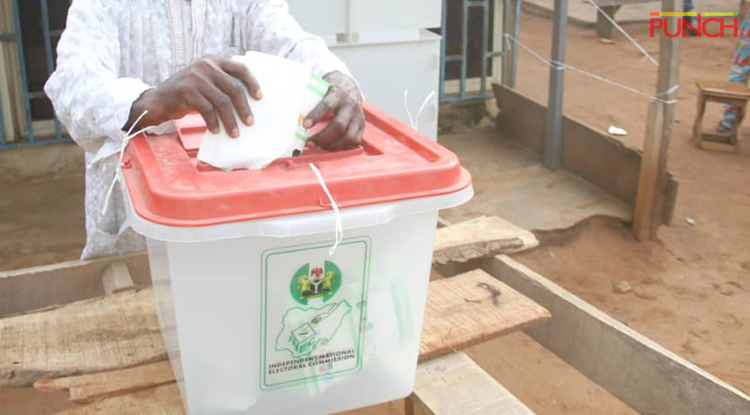On Saturday, confusion reigned in Makurdi, the capital of Benue State, during the local government elections as voters struggled to find polling stations. Reports indicate that several individuals searched for locations to cast their votes, only to realize that there were no electoral materials available at many polling units, including the NULGE office and several others across the city. From the standpoint of our correspondent who toured various locations from mid-morning to early afternoon, the absence of election materials was striking. Voters were reportedly redirected to ward headquarters for voting, leaving many unsure about the process or where they were supposed to go.
At the NULGE polling unit, presiding officer Enokela Akor expressed frustration due to the delayed arrival of election materials. He arrived early in the morning at 7:30 am, anticipating a prompt start to the voting process at 8:00 am, but by 1:12 pm, there had been no updates or supplies delivered to his location. This lack of preparedness raised questions regarding the organization of the elections and the assurance of a smooth electoral process. As a result, numerous voters remained in limbo while waiting for the necessary resources to facilitate their participation in the election.
Further complicating matters, the LGEA primary school in Walomaya ward served as a collation center where electoral officers were still sorting through materials at around 11:37 am, adding to the delays at the polling units. Many voters expressed discontent about what they labeled a “centralization of voting,” as information disseminated to them indicated they should go to designated central locations instead of their assigned polling units. A concerned voter named Aondover detailed his experience of arriving at the old bridge in North Bank only to be redirected to the Agan collation center, illustrating the widespread confusion among the electorate regarding where they needed to be in order to fulfill their voting rights.
Despite the turmoil at the polling units and the concerns raised by voters, Richard Tombowua, chairman of the State Independent Electoral Commission, maintained that the elections were procedurally ongoing across all polling stations in the state. He refuted claims of centralized voting, asserting that reports indicated an unfolding election without significant observable issues at the grassroots level. He aimed to quell the rising unrest among the electorate by presenting an image of a functioning electoral process despite the evidence to the contrary.
In contrast to Tombowua’s optimistic claims, Benjamin Omale, the Caretaker Committee Chairman of the ruling All Progressive Congress, reported a more favorable situation. After his visits to seven polling units before 11 am, he asserted that voting was proceeding smoothly in the areas he surveyed. However, the opposing political narrative emerged from the newly elected State Chairman of the Peoples Democratic Party, Ezekiel Adaji, who characterized the election as a “rubbish” affair. His frustration was palpable as he reported still waiting for election materials at 1:58 pm, despite his expectations that the process would be overseen fairly, especially considering the involvement of a priest in the election’s organization.
Ultimately, the local government elections in Makurdi highlighted significant disorganization and miscommunication, leading to widespread voter confusion and frustration. The scenario illustrates deeper issues within the electoral process, including logistical challenges, failure to adequately prepare polling units, and discrepancies between official narratives and ground realities. As the citizens of Benue State sought to exercise their democratic rights, the lack of timely information and materials echoed concerns regarding accountability and transparency in local governance and election operations, which are critical in building trust among the electorate.














